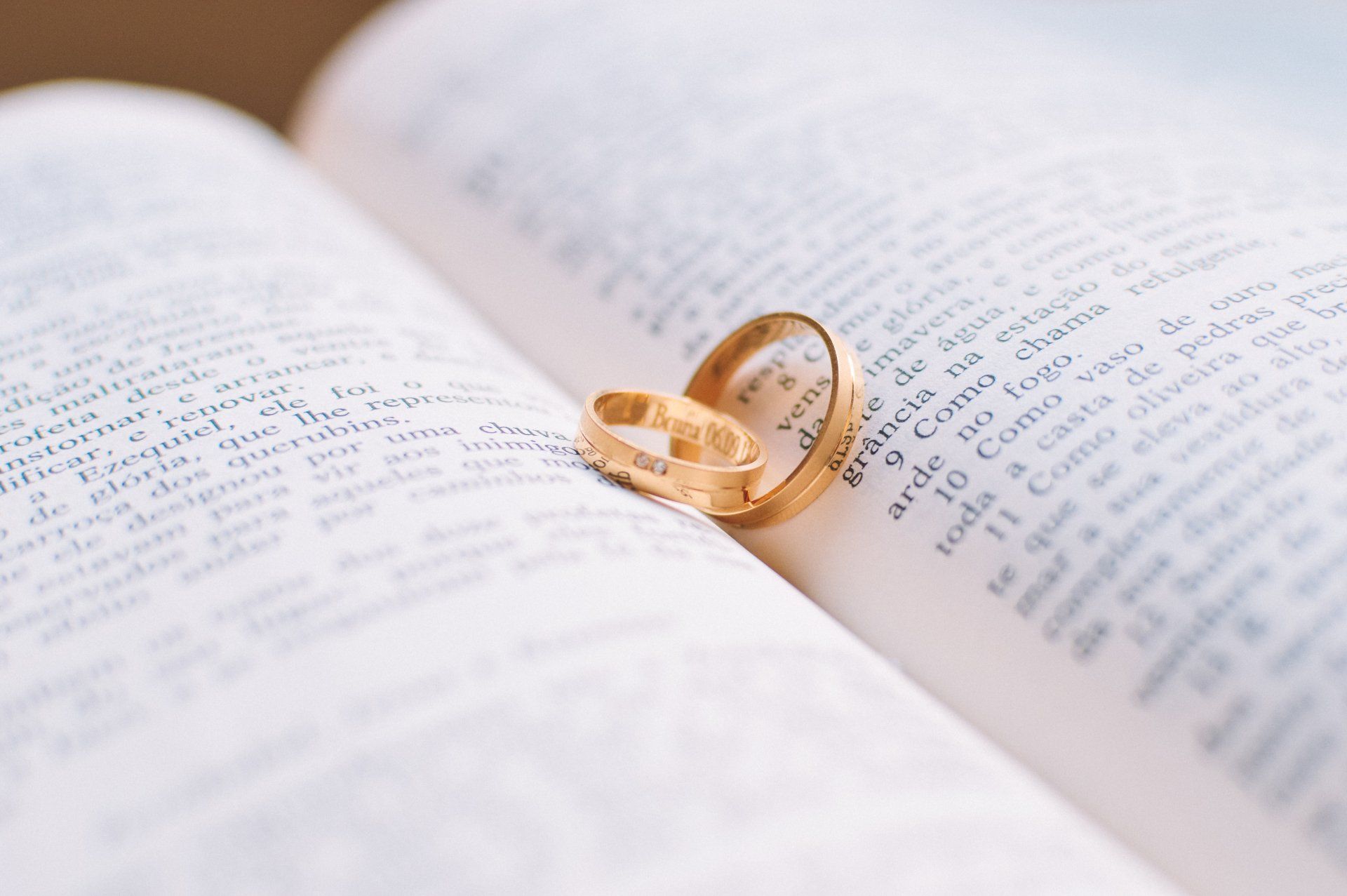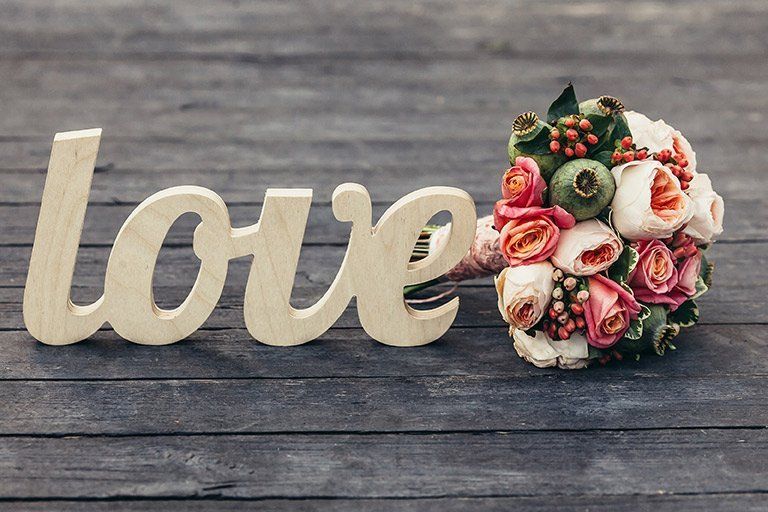All Things Weddings Blog

29 Jan, 2024
Alright, guys, listen up! Gone are the days when weddings were all about the bride and her mom going bonkers with planning. We're in the 21st century now, and it's a whole new ballgame. Couples are shelling out their own money, families are splitting the bill, and same-sex weddings are giving the rule book a swift kick out the window. Now, if you're the groom and the thought of diving into a world of cakes, flowers, and colour swatches makes you break out in a cold sweat, fear not! There's still a bunch of stuff you can dive into without losing your sanity. Enter our Groom's Guide to Wedding Planning – your secret weapon in this adventure. We've got a handy timeline so you won't miss a beat and can make sure your big day is nothing short of legendary. Let's do this, fellas! 12- 18 Months Before The Wedding Book Your Photographer In the age of all things digital, it’s still important to have hold-in-your-hands memories of the big day. So, don't go cheap on this one. Splash out on the best photographer you can afford and lock them in way ahead of time. With all sorts of styles to pick from it can be a bit of a photography minefield but spend some time researching various options, looking through their websites, social media and portfolios and see if there’s anything that calls to you. Next, narrow it down to a few photographers who come in on budget and who’s style you like and book onto some consultations, either on Zoom or even better in person. If you're tying the knot in the middle of wedding season (especially on a weekend), play it safe and book that photographer at least 18 months before the wedding, some of the best photographers can get booked up even 2 years in advance so be safe and start to research available options as soon as you’ve got your wedding date locked in 12 Months Before The Wedding Book The Transport Is your wedding style leaning towards a horse-drawn carriage or a sleek stretch limo? Perhaps a Bentley exudes the right charm, or you're drawn to the timeless allure of a classic Cadillac. Your choice of transport is more than just a logistical move; it's a chance to make a lasting impression. Therefore, when delving into the choices of wedding transport, opt for one that perfectly mirrors the style of your big day and also meets your transport needs, whether it’s just for you as a couple or you are putting on transport for your guests too. Specialised rental companies boast an array of options, spanning from vintage classics to the latest models and plenty of options for guest transport too. Keep in mind that your chosen wedding car will be a star in numerous photos, so choose wisely to ensure it complements the overall aesthetic. Book The Entertainment You’d be surprised how far in advance great bands and entertainment options get booked up. If there's a specific DJ, musician, or band you've got your heart set on, make your move at least nine to twelve months before the big day. For those open to DJ companies, a solid six months in advance should suffice. And here's a pro-tip: don't shy away from sharing your musical preferences. Let your DJ or band know what you're vibing to, ensuring their set is tailor-made for your crowd. Because let's be real, no one wants a deserted dance floor at their wedding bash! 6-8 Months of before The Wedding Book The Honeymoon You may wish to plan a honeymoon with your partner but equally this is an opportunity to infuse romance by taking the reigns and organising a surprise destination, making it a journey to remember. It’s important to realise that this isn't your run-of-the-mill holiday, so no room for last-minute antics. This calls for serious research and meticulous planning, from choosing the ideal destination to sorting out accommodation and activities. Whether your hearts set on a romantic rendezvous in Paris, a relaxing cruise, exotic and all inclusive or the bright lights and excitement of a city break, the key is to enlist the help of a reliable travel agent. They're your secret weapon in crafting the perfect getaway. As you immerse yourself in the travel admin, don't forget to cross the T's and dot the I's and double-check both your passports. Because nothing should stand in the way of your extraordinary honeymoon! 4-6 Months Before The Wedding Sort The Suits Whether you're opting for a rental, off-the-rack purchase, or indulging in the luxury of bespoke tailoring (because, let's be real, your wedding day is the ultimate excuse to go all out for a suit that fits like a dream), it's high time to lock in those crucial appointments. Keep in mind you may need a number of appointments for wedding parties, early birds catch the perfection worm, so we strongly advise getting in as soon as possible. That way, every suit can be fine-tuned well in advance of the grand celebration. 6-8 Weeks Before The Wedding Buy the Gifts Expressing gratitude for the support of your wedding party, including groomsmen and bridesmaids, is a thoughtful gesture. Speak with your partner to organise a meaningful gift – it could be a joint effort. And, of course, don't overlook your best man, especially if he's gone the extra mile in orchestrating your stag – he deserves a little something extra special for his exceptional efforts. Whilst we are talking of gifts it’s also a nice idea to start to think about whether you’d like to gift your partner something on the wedding day, whether it’s a piece of jewellery, some shoes, an addition to their outfit or a heartfelt letter – but, whatever you do, don’t leave it too late to start looking, last minute panic buying is a stress you don’t need just before the wedding. 1-2 Weeks Before The Wedding Write Your Speech This one is a common stress point for grooms, and we've seen way too many leaving it right up to the last minute. But here's the deal: resist the temptation to procrastinate. The more time and thought you put into it, the more personal and heartfelt it'll come across. And guess what? It's not as tough as you might think. No need to match the best man's wit or hit the emotional notes like the father of the bride. Your job is simple: give thanks to the bridesmaids and groomsmen, let the in-laws know you're pleased to be marrying into their family, and share a few genuine words about your better half. Think about your message, jot down some quick bullet points, and here's a tip – don't read word-for-word from a typed script. It kills the vibe. Get your hair cut Don’t leave it to the day before the wedding. You’ll have plenty to do, plus, it’s best to give your hair a little time to settle down. So there you have it! Remember being a groom is more than just showing up in a slick suit. It's about getting hands-on, enjoying the ride with your partner, and soaking in the excitement leading up to that "I do" moment. Whether you're picking out a killer suit, surprising your crew with cool gifts, or putting together a heartfelt speech, this guide's got your back. Here's to a wedding day packed with love, laughs, and your own personal flair – may it be as awesome as the journey that brought you to this point!

19 May, 2023
Are you getting ready to say ‘I Do’ to the love of your life? One of the most special parts of a wedding ceremony is when the couple exchanges their vows. These promises to love and cherish each other are a beautiful way to express the love and commitment you have for one another. If you are thinking about writing your own wedding vows, you’re in for a treat, read on for my top tips on writing your vows! Not only is it an incredibly personal and intimate way to express your love, but it can also make your wedding ceremony even more meaningful. We know that writing your own vows can be a bit daunting so we’ve put together this guide that will help you express your love and commitment to your future spouse. Here’s the tips and inspiration to make the process easy and stress-free. Let’s get started on what you need to know to make your wedding ceremony a truly unforgettable moment! 1. Start by brainstorming Before you begin writing your vows, take some time to think about what it is you’d like to say. Write down any thoughts or memories that come to mind when you think about what you want to say or express to your partner. Ensure that you’ve both agreed on a rough length for your wedding vows. Neither one of you wants to be monologuing whilst the other only has a couple of sentences to say. Whilst your wedding vows don’t have to exactly match in length it’s a good idea for them to be similar. It’s also a good idea to know roughly how long your vows will take so that you know how long your ceremony will take to read to one another, as this will help with planning other aspects of your wedding day. 2. Avoid writer’s block If you are struggling to know what to write then read examples of other people’s wedding vows, look at the types of things that are commonly included and see if that can give you some ideas for what you want to include in your own vows. You can find lots of inspiration and tips online to help you. Instead of making general promises, try to be specific about what you will do to love and support your partner. For example instead of saying “I will always be there for you” include specific examples of how you will support your partner and include personal details that are meaningful to the both of you. Such as promising to allow the other one to always choose the treats at the cinema, or the next Netflix series to binge on. Try to set aside time where you can be fully focused on writing your vows – you’re likely to need to do this more than once as you might need more than one session to be completely happy with your vows. Consider what works well for you; do you find yourself able to concentrate and be more productive in a quiet setting or do you prefer some background noise? Try a few different things and see what works best for you. 3. Keep it simple Vows don’t have to be overly complicated or poetic. Keep your language clear and simple so that your message comes across clearly and they are easy for you to express on the day, when nerves could be a little higher than usual! Don’t be ashamed to lean on those around you a little. Ask close friends and family to describe you as a couple or recount to you a memory they have of you both that really stands out in their minds. This could give you some great ideas and even jog your own memory or inspire you to consider a direction or a moment to include you hadn’t even thought of. 4. Funny or romantic? Do you want your wedding vows to be funny or romantic? Or are you going to try and add a little of both? If you’re finding it hard to strike the right balance, then just remember the most important thing is that you speak from the heart – you really can’t go wrong with this. 5. Practice! Practice! Practice! As you write your wedding vows keep reading them out loud to yourself – how they sound as you read them in your head and how they sound out loud can be very different and once you actually hear your vows you may find that you want to change them or move things around a little bit so that they flow better. Reading your vows aloud will also help you feel more comfortable and confident when it comes times to recite them during your ceremony. Finally, remember to keep it heartfelt, honest and sincere and don’t be afraid to be vulnerable or show emotion while you’re reciting them. It’s okay to laugh, cry or be nervous. It’s a special moment and the most important part of your day – making the promises you intend to keep to each other before you’ll commit to a lifetime of happiness together.

12 May, 2023
Welcome to part two of our wedding planning timeline guide. In part one we talked you through planning your morning, ceremony and the drinks reception timelines for your wedding so that your whole day runs to plan, ensuring nothing is rushed or missed. Having an on the day wedding planning timeline is important for not only coordinating where your suppliers need to be and when but also so that every component of your day happens in the way you envisioned. With a well-organised timeline, you, your wedding suppliers and venue team can have a clear idea of when key moments of your day are happening and ensure everything is set up and organised. It’s also key to help manage time effectively, ensuring that everything runs on schedule throughout the day. This is particularly important for weddings where a delay in one area can create a domino effect, causing other activities to run behind schedule. Overall, having an on-the-day wedding timeline is so worth it and ensures a smooth and stress-free wedding celebration and keeps everything to plan. If you missed the first part of this blog make sure you head on over to our blogging area to read more tips on keeping organised and your wedding day on schedule. 4. The Wedding Breakfast Now things start to get a little more complex! The wedding breakfast is always completely unique from wedding to wedding, meaning that the wedding planning timeline will need to be adjusted based on a number of factors such as the number of courses you are having, any speeches and even by the number of guests. Traditionally the wedding line up usually starts a wedding breakfast. The practice of having a receiving line is becoming less common, but some couples still prefer to have it as a way of ushering guests into the wedding breakfast. One benefit of having this tradition is that it ensures every guest has a brief moment to congratulate the newlyweds. However, it can be time consuming for larger weddings. A big component of the wedding breakfast timings is the food. If you’ve got a lot of guests and a lot of mouths to feed, your wedding breakfast is going to take longer. One way to streamline your wedding breakfast and keep timings shorter is to cut out a dessert course. Many couples decide not to bother with a dessert course and have a cake table or dessert bar instead. Having a cake table is a nice way of leading into the cake cutting too. Other weddings decide to skip the starter and serve entrees or canapes instead with the welcome drinks. The next consideration for your wedding day timings will be the speeches. When it comes to the speeches, it’s generally expected to have three, but you can opt for as few or as many as you like, or none at all. Traditionally, the father of the bride speaks first, followed by the groom and then the best man. However, it’s becoming increasingly common for other members of the wedding party to also give a speech. The speeches are a significant and memorable part of the day, however it’s important to ensure they don’t drag on. Keeping things concise and to the point can prevent guests from becoming restless. It’s also advisable to keep each speech under 10 minutes in length. This timeframe is usually sufficient for sharing some emotive stories, sharing in some laughs and telling a few memorable stories too. As for timing, the wedding breakfast usually lasts between 2-3 hours, depending on the number of guests you are having, courses of food you are serving and the duration of those speeches. 5. The Evening Reception At last, it’s party time! The great thing about the evening receptions when it comes to working out your wedding timeline is that it’s probably the most flexible part of the day! Unless you are lucky enough to have different rooms set aside or a great big giant room with space for everything for your whole wedding breakfast and the evening do, your evening reception will usually start logistically with a turnaround. For this, the venue staff will need some time to clear out some of the tables and set up your dance floor. They’re complete pros at this, so you probably only need about half an hour to get everything ready – which gives your DJ or band time to set up too. If you have guests coming just for the evening, it’s important to have your wedding timeline worked out so that you can make sure guests know to arrive before evening events like your cake cutting or first dance begins. Some people like to cut the cake during the evening reception just before the first dance happens. It doesn’t take too long to do but usually you’ll have some extra photographs during this part. Your wedding DJ will need to know rough times for your first dance and any extras you may be doing too. The traditional setup for the first dance actually includes a dance for the newlyweds, one for the father of the bride and one for the mother of the groom, however it is incredibly rare that all three happen at modern weddings. Again, the first dance doesn’t take much time but there’ll be some preparation and photographs involved so is something that does need factoring in on your wedding timeline. If you’re not a fan of first dances and feel potentially awkward shuffling around the dance-floor, it’s important to remember that you don’t have to do it if you don’t want to. In my experience as a wedding supplier, We've seen different approaches to the first dance. Some have involved members of the wedding party, others have choreographed routines and some weddings where no first dance takes place at all. Ultimately, it’s your day, and you should do what you want. Don’t feel pressured to include something just because it’s tradition. When it comes to your evening reception catering, most couples like to include evening food for guests which is often a buffet but it can be anything you like from fish and chip stations, hog roasts, grazing platters to bacon butties. When you are looking at your wedding itinerary, you’ll want to make sure your evening food is being served at a decent time after the wedding breakfast, but before people are ready to call it a night. The ideal time for the evening food in your wedding day schedule is typically between 7 and 8pm, this is the perfect balance of being far enough away from the wedding breakfast so guests can feel hungry again and not too early that they are too full to dance the evening away! The evening food is typically served for around an hour, while continuously being replenished. After that, your venue may still provide small bites and nibbles for the remainder of the evening, depending on your available catering options. Essentially your wedding reception will last from the moment your speeches are over until your DJ plays the last song and the music is turned off at the end of the night, but sorting our a wedding timeline gives you the chance to make sure all guests have arrived to witness the parts you’d like them to. Everything else is just dancing! Hopefully with the help of our two articles you’ve got a comprehensive idea of what’s involved in creating your wedding timeline – and why it’s so hugely important to have one. Your big day will absolutely fly by, and don’t doubt for a second that your timeline will be something that will need to be flexible from the second you start your day, but by having a timeline in place, and having a good idea of how long things should take, it’s going to help you when you’re planning your timings for everything. It’s really handy and can help you choose easily what time to have your wedding ceremony right the way to what time your evening reception will start. Plus if something unexpected does happen, your on-the-day timeline is going to be the key to dealing with everything stress-free so everyone will know how to get back on track without fuss or worry – and without a single guest even noticing! Now you have timeline set up the most important part of your day is to ENJOY EVERY MOMENT!

03 May, 2023
As you begin to plan your wedding day, it’s often the fleeting moments that come to mind – the joyous look on your father’s face as he sees you in your wedding dress for the first time, the emotions that surface as you walk down the aisle, the first kiss and the magic of your first dance. Although it may seem like these special moments just happen naturally at some point in the day, the truth is that a bit of planning is required to ensure that everything falls into place seamlessly. With so many moving parts involved in your wedding, it’s important to carefully consider each detail. A well planned timeline will help you stay organised and ensure that everything runs smoothly from the moment you start to get ready until the end of the night. But the effort into planning absolutely pays off, making it all worthwhile. Read on for all the essential details to make sure your whole wedding day goes off without a hitch. 1.Plan Your Morning It may not be the most glamourous idea to plan a timeline for the morning of your wedding, however there’s lots of prep to get done and it’s quite often one of the busiest parts of your wedding day. Too many brides to be and even mothers of the bride skip breakfast, but I urge you not to. Having something light isn’t going to impede on you fitting into your wedding dress, it’ll ensure you have lots of energy for the parts of your day to come and means you can just focus on the joyous moments to come rather than be distracted feeling light-headed or just hangry. Most hairstylists will ask that you wash your hair the night before so that it’s clean, dry and ready to be styled so this will save you some time. Make sure that you’re showered before you get to your preparation location, the last thing you need is everyone running late because there’s a queue for the bathroom. If you plan on hiring a professional to take care of your hair and makeup on your wedding, they’ll typically tell you the best start time for their services. However, if you’ve decided to do it yourself or ask a friend to help, you need to factor in enough time to ensure everyone looks their best before you head out. Typically, the bride will need approximately 45 minutes to an hour for hair styling and then the same for makeup application. Bridesmaids, on the other hand, usually need less-time, averaging around 30-45 minutes each. Don’t forget about the mother of the bride too, who may also require some attention too. If your bridal party includes any children, it can be hugely helpful to plan their day out in your timeline too. With so much going on around them and lots of stranger coming and going, it can be difficult for any smaller children on the big day. Little things, like giving them some special responsibilities to practice in the morning can keep them occupied and feeling important too. 2.The Ceremony All wedding ceremonies are unique, but there are a few factors in all of them that will add time to your day. Whoever is performing your ceremony, whether it’s a religious service or civil ceremony will let you know how long it’s expected to last, so it will help you to work out your wedding timeline for the rest of the day. The length of your ceremony will largely depend on the type of ceremony you choose. Religious ceremonies are often longer, allowing for hymns, prayers and sometimes even a brief sermon. These usually range from 30 minutes to an hour depending on the number of hymns and readings you decide on. Civil ceremonies are usually shorter, lasting anywhere from 20 minutes to half an hour. Again, these can be longer depending on the number of readings you decide on having Timings to consider for this part of the day include photographs of arriving and before you head into the ceremony so you are able to ensure your photographer is ahead of you. You’re also probably going to want to have some more photographs after the ceremony too, particularly if you are planning on any confetti shots. A great tip for this part of the day is to consider transport from your ceremony to your reception. If you are having it all in one place, its super simple but if you are hosting your reception elsewhere it can be a little more complicated. Guests can hang around and chat in between making it over to your reception, they’ll want to congratulate you and mingle amongst themselves too. Plan to do the confetti shot and get in your car as soon as possible once the ceremony itself is over – that will encourage the rest of your guests to follow on. If you are putting on any transport for guests you can also control the timings a little easier but if not, consider how easy your guests can find parking. 3.Drinks Reception and Photos This is probably the most standard section of your wedding timeline, most weddings will take between an hour and an hour and a half for the drinks reception, which is also the time you’ll be having your photographs done. If you can, this is a lovely time for you and your new spouse to take a moment together. No photographs, no well-wishers just a nice quiet moment together to reflect on being married. It’s a special moment and space to yourselves before going back into the happy, bustle of your celebrations! One of the best tips I can give is to make use of your bridesmaids and groomsmen in this part. One thing that slows down the photos is not having the right people in the right place at the right time. So make use of your wedding party. Give a list of group photos and make sure you have someone from each side of the family involved so collectively they’ll know who everyone is. This by far is one of the best ways to keep your day in check and keep your wedding timeline on track! Usually providing some nibbles or canapes at this part of the day keeps your guests where you need them to be too! That’s Part One of our wedding planning timeline tips. Pop back and check our part two when it lands shortly where we’ll be covering other key parts of the day and sharing my inside knowledge on keeping your wedding day timeline organised and on track.

21 Apr, 2023
Setting your wedding budget is no easy task. From your wedding dress, all the food, award-winning photographer, entertainment, cars, cake…the list goes on. Your wedding will most likely be the biggest (and most expensive) party you’ve ever hosted and it all can sound a bit expensive, can’t it! Even if you don’t want all of those things or if you are planning an intimate micro wedding the costs can soon build up. To make a budget for your wedding you’ll need to add up any savings and maintain a detailed spreadsheet, so you make sure you stick to your budget throughout your planning process. You should prepare for some unexpected costs as well as be prepared to make any cuts necessary to ensure you don’t exceed your total budget. Yes, it’s hard work but putting in the time and energy now will ensure you’ll be able to have a wedding budget you can actually stick to. Whether you are working with an overall budget of £1000 or £100,000, there are some general guidelines that can help you to decide what you can afford to spend and what you’ll want to save or splurge on. Crunch Your Numbers How much you have to spend on your wedding is going to depend on how much you earn and what you can set aside each month, any individual savings you already have and any financial contributions you may receive to help pay for your wedding. You and your partner will need to have an open discussion about all areas of your finances and look at what savings you each already have. How much of this money are you each willing to put towards your wedding day? Whilst you might be tempted to throw it all in that might not be the best approach. You still want to keep some of that money separate for unexpected bills like a car or boiler breakdown. It’s a good idea to have an emergency fund separate to your wedding account for any unforeseen emergencies. We all have fixed costs that can’t be avoided – like the mortgage or rent – but then we go on to spend a surprising amount of money on ‘throw away’ or ‘luxury’ items. Do you really need that Starbucks ever morning, or is that money that you could be saving? It’s time for each of you to sit down, look at your take home pay each month, take out all of your fixed costs and then see what is left over – how much of that are you able to save each month? If you plan to get married in 18 months and you are able to save £600 a month between both of you then you could have an additional £10,800 to add to any current savings. Will you be gifted any money to help with costs? Do you have any family members who may have been putting money aside to go towards your wedding costs or is there anyone that would like to pay for something specific for your wedding day? This could potentially be a massive bonus for you and really help with a key cost. Yes it can be awkward to have these conversations but perhaps a grandparent has always dreamed of buying you your wedding dress. Knowing who these contributors are likely to be are essential in figuring out your overall budget. Track Your Spending Create a wedding spreadsheet and get comfortable with estimating, updating and tracking each and every expense for your wedding. At this stage create 3 columns, an estimated, modified and actual spend. The amounts that fill your estimated column will be from a mixture of general research and estimated guests based on the suppliers you’d like at your wedding. Once you receive proposals you’ll be able to fill in the modified area of your spreadsheet and begin to see whether you’re likely to come in around the budget you had in mind or whether you were way off. The final amount you pay will go in your actual spend column. Keep your spreadsheet as updated as you can, and change any estimates as soon as you have a more accurate quote. Start with your biggest costs such as your venue and any outside catering and ensure you’ve received accurate quotes by asking if VAT or any extra gratuities are included in the quote. Prepare for any surprises by having an extra amount budgeted to cover any items you may have forgotten or extras you decide you’d like later down the line. Find Ways To Save If creating your budget and assigning it to different areas of your wedding felt like hard work, then actually sticking to your budget can sometimes feel even harder or even an impossible task. If you are totally over budget these ideas will help you to save · Change your venue – usually one of the most expensive costs. Blank Canvases feel like a steal at the time but costs can add up when hiring everything in. There’s usually money to be saved on your venue whether it’s hiring a smaller space or going for a package deal – be venue savvy from the off and your budget will thank you. · Go off peak – having a midweek wedding or a date that’s out of the late Spring/Summer period will also come with more reasonable rates. · Have a longer engagement – this gives you more time to save and have those extras you’ve always dreamed of. · Shop around – always make sure you get more than one quote so you can see what a good price is. · Have the ceremony and reception in the same place and cut transportation prices. · Keep some of your initial budget set aside right from the start – this is your contingency money; you only use it when you absolutely have to, but it helps to stop you from going over budget. · Don’t make impulse purchases – have a clear plan for what you want so that you avoid those impulse purchases that can often cost more than just their price tag. And remember, it’s not about how much money you spend but it’s about how much love and joy you feel. At the end of the day even if you get married for £100 in a simple dress or suit it will be an incredibly beautiful, meaningful and memorable day. Plus you’ll be able to set aside more cash for your honeymoon. Win-Win!

